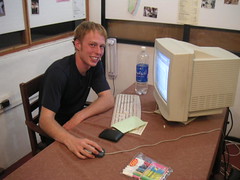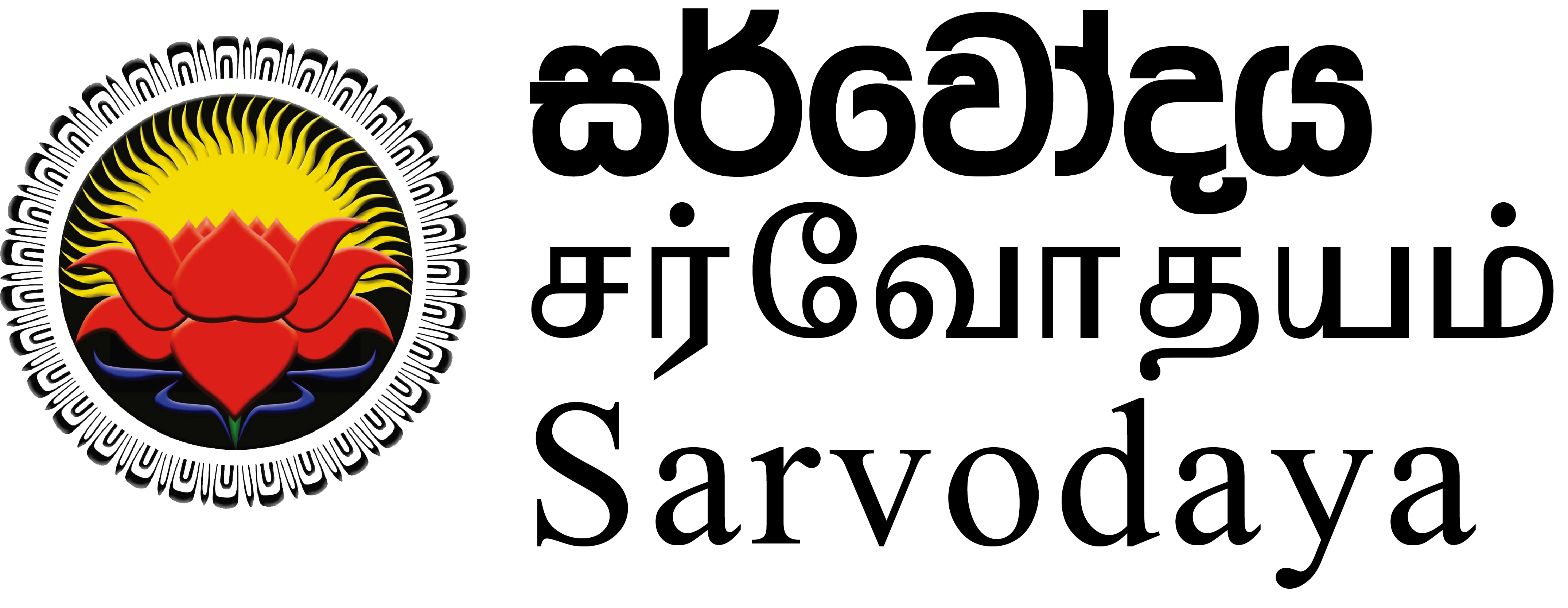Jesse Cusic
Nashville, Tennessee, USA
14-2-2005
 I was not able to sleep on the night train from Colombo to Trincomalee. As I sat in my seat watching the fields of rice and sleepy villages pass I asked myself ‘what is disaster relief?’
I was not able to sleep on the night train from Colombo to Trincomalee. As I sat in my seat watching the fields of rice and sleepy villages pass I asked myself ‘what is disaster relief?’
I had arrived in Sri Lanka five days prior with three of my friends. We had come here to purify water for people in the villages around Mutur. The day after we arrived from the states we left for Trincomalee and Mutur. The villages in Mutur were all but impossible to get to because the roads had been washed away by the tsunami and all that remained were some tractor ruts and sand pits to drive through. We arrived at the camp and went to see where the village had been. Honestly it was difficult to tell where the village had been. All that remained was half of a wall of the temple, the rest was just a scattering of bricks. I imagined I would see what I had seen in photographs in magazines, boats in houses and homes missing most of their walls, but there was nothing to photograph here, everything was gone. As it turned out the camp where the villagers were living had received water the day before from a water truck and there-fore did not need our purification services. They did however tell us that the village needed to have it’s wells cleaned from all of the salt water and debris that the tsunami washed in. We left Mutur that afternoon to return to Colombo and then travel to Ambalangoda to learn how to clean wells and get the necessary supplies.
So now I am on the train to Trincomalee surrounded by our new pump and coils of hoses and buckets and brushes. The train pulled into the station at about 7am and we left immediately for the six hour journey to Mutur. Again we had problems getting to the camp because our van driver did not want to ford the river we would need to cross to get to the camp. We left the van and threw all of our things in a passing lorry and rode the rest of the way into camp. The first well we pumped turned out to be broken and we did not have the materials (or the time for that matter) to patch it. We got the wells cleaned near the school yard before it was to dark to work anymore. We spent the night on a concrete slab at the school on a beautifully clear night and no electricity for miles around to disturb our view of the stars or mute the sounds of the waves.
The next morning we caught another lorry (actually I think it was the same one we had gotten the day before because it was the only car I saw the whole time in Mutur) to another village that had contaminated wells. We spent the rest of the day pumping and disinfecting and scrubbing the wells in the camp before we had to leave. The drive out of Mutur took even longer as there were no cars or trucks so we had to resort to riding a tractor and landmaster for a few hours until we past the LTT checkpoint and could find a van.
We rode the train the next morning back to Colombo and spent the next day resting before my three friends flew back to the states. After they left I spent the next few days traveling to Ambalangoda and Galle and Matara to view the affected areas and displaced people camps. I wanted to find out what disaster relief looked like from the view point of a big NGO. I found Sarvodaya and offered to volunteer. After I arrived at the head office they put me to work bagging rice from large bags to small bags, which are then put into larger bags and filled with canned foods, flour, sugar, crackers and what not. They are then tied shut and ready to be distributed to families in the affected areas. The next morning we loaded the lorry with 500 of these family packets, clothes, water, 50kg bags of rice, juice boxes, etc. At around 2 o’clock the lorry left for Matara. I rode in the back waving at all the children who laughed at seeing a skinny white boy riding in the back of a supply truck.
We stopped north of Galle and distributed 50 of the family packets to a group of people living in camps there and some boxes of things to different centers along the way. We arrived in Matara after six hours and then proceeded to unload the truck for the next couple of hours. The truck left soon after and I stayed at the district center and had dinner and hung out with the boys living there doing the distribution of supplies. The next morning I had to leave before we loaded the smaller trucks delivering food to the individuals and camps so I would be able to visit some friends in Ambalangoda and get back to headquarters at a reasonable hour. Between Galle and Ambalangoda I stopped to photograph the train that had derailed in the tsunami and thousands of people perished in. A lady came up to talk to me as I was taking pictures telling me about where that train had crashed and how many people had died. She then told me she had lost her two daughters in the tsunami. When she asked what I was doing here I told her I was volunteering with Sarvodaya. She kept thanking me over and over again. I could not think of how to reply to this woman. I was no one to thank. I had put rice into bags and then put them into other bags. I had run a pump and stirred in chlorine. I hadn’t done much. I had not saved anyone from despair or been able to give someone a home or even milk powder (I was in rice rotation).
So maybe I know what disaster relief can look like. It can be riding in the back of a truck waving at children or drinking coconuts given by the man whose well you just cleaned. Maybe it is carrying bags of clothes and food from one place to another. It is nothing nearly as grand as what I thought it would be. Everything that seems so simple seems to matter the most to the people affected by this tragedy.
Monday morning I started working again at the head office of Sarvodaya. I moved clothes from one place to another, I filled trucks, I put bags of rice into other bags. I will do the same thing tomorrow too, maybe I will get to catch another truck heading out and ride in the back on bags of clothes and wave to children.
